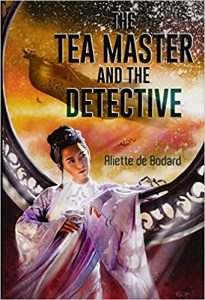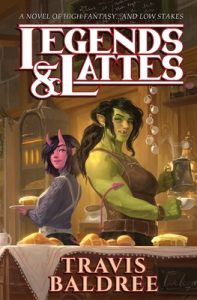 Claim (Fury Brothers Book 5) by Anna Hackett
Claim (Fury Brothers Book 5) by Anna Hackett Format: eARC
Source: author
Formats available: paperback, ebook
Genres: action adventure romance, contemporary romance, romantic suspense
Series: Fury Brothers #5
Pages: 240
Published by Anna Hackett on October 17, 2024
Purchasing Info: Author's Website, Amazon
Goodreads
It was only supposed to be one night—a hot, nameless encounter with the gruff, gorgeous older stranger.
When you’re on the run from a killer, you can’t afford attachments. For over a year, I’ve been alone, never staying in one place long, fighting to survive.
But when the tall, muscled man with the intriguing ink steps in to help me with an obnoxious admirer, we end up sharing a coffee. Coffee turns into the hottest night of my life.
I never expected to see him again.
But when I walk into Hard Burn—the best gym in New Orleans—desperate to learn how to fight, I discover my stranger is none other than Beauden Fury.
When Beau discovers I’m being hunted, I see the true depth of his protective streak. He gives me a job, and says he’ll train me to protect myself. But he also makes it clear that he thinks I’m too young, too vulnerable, and too nice for him.
Now we’re spending hours together, side by side, and it’s hard to remember that I can’t let myself get too close. It’s even harder to fight our red-hot desire.
But the man hunting me hasn’t given up.
Can I defeat a killer, and prove to Beau that what we have is worth fighting for?
My Review:
Claim is the fifth and most likely the final book in the Fury Brothers series (barring any epilog-type short stories) – because there are five Fury Brothers and as this book opens, Beauden Fury is the only brother left standing alone. Not that THAT lasts long after the woman he knows only as Bell walks into his New Orleans gym and pretty much demands that he train her to fight.
So she can fight back against the literal demon that is chasing her. Not that Beau knows what – or rather who – is driving her. Just that he’s certain that something is. Because the morning after they met in some tiny town in the middle of nowhere – and spent one glorious night together – she fled without a trace, leaving nothing but a sweet memory he can’t get out of his head and a name that isn’t nearly enough to track her down with – if it’s even hers at all.
He thought it was for the best. He’s convinced that he’s too old, too rough and too broken for her.
As much as her night with Beau was the best, safest, ANYTHING she’d had since she went on the run, Bell thought it was best to leave because it’s too dangerous for anyone she gets close to. Chandler Carr, the serial killer chasing her down and tormenting her every step is toying with her, his prey, as he runs her down – the only one who ever got away.
Bell comes to New Orleans because she always wanted to see the city – and because her would-be killer found her in Pensacola. She’s in Beau’s gym because she needs the best to train her to fight back – because if she can’t fight back and fight hard the next time Carr catches up with her it will be her death. The notes he’s left her – no matter how far or how fast she runs – make that frighteningly clear.
No matter how much Beau and Bell each tell themselves that the other would be better off without them – they can’t keep their hands off each other and can’t resist falling hard for each other. Even though they each believe that their relationship is best if it’s only temporary – until Carr is out of the picture.
Of course, they are both wrong, Wrong, WRONG! The question is just how big of an idiot one or both of them will have to be before they figure out that they belong together.
If Carr lets them live that long.
 Escape Rating B: Readers of the Fury Brothers series will see echoes from the first book, Fury, in this final book. Mila Clifton was being chased by the mob in that first book after witnessing a murder. Bell is being chased by a serial killer after she witnessed him leaving her apartment and discovered that he’d murdered her roommate.
Escape Rating B: Readers of the Fury Brothers series will see echoes from the first book, Fury, in this final book. Mila Clifton was being chased by the mob in that first book after witnessing a murder. Bell is being chased by a serial killer after she witnessed him leaving her apartment and discovered that he’d murdered her roommate.
Neither woman was responsible for the mess that they found themselves in – and both of them were on the run because anyone they got close to got dead. Both of them get involved with the Fury Brothers because they’ve moved into the Fury orbit and have each met someone who can’t resist protecting them. And because they can’t resist their protector no matter how much they think they should.
The ‘heroine in jeopardy reacting by running’ trope is not one of my favorites. But it works for the Fury Brothers, in both cases, because in spite of it being a cliché it doesn’t descend into one. Bell is not TSTL. She doesn’t do anything stupid – although there’s a point where the reader thinks she might have that turns out MUCH better.
Neither is remotely responsible for the fix they’re in – not by any standard of guilt except possibly their own. And in neither case is their pursuer an EvilEx(™). I personally hate those stories.
Claim does run straight into another trope that can go pear-shaped, but in this case fits well within the setup of the series as a whole AND gets its comeuppance in very short order once Carr is out of the picture, and that’s the “I’m not worthy” trope. At first they’re both suffering from it as Bell’s presence does paint a target on anyone she gets close to, while Beau thinks he’s not worthy of anyone’s love because of the addict parents he ran away from. (The Fury Brothers have all had a bit of an issue with the “I’m not worthy” thing for reasons that are clear in their stories, so this isn’t out of left field. Also, Bell does a great job of separating Beau’s head from his ass as soon as their situation is resolved.
Very much like my reaction to that first book, I liked this one in spite of myself. The description had me worried that it was going to dive into a whole bunch of tropes that I’m not all that fond of, but it didn’t and the blend of if not going to any of the places I worried about while wrapping up this marvelous series of found family stories AND telling a hot romance set in a fascinating city absolutely did work for this reader.


 The Mountain Crown (The Crowns of Ishia, #1) by
The Mountain Crown (The Crowns of Ishia, #1) by  In the end, what brought the story together was the way that it reflected on colonialism and empire, shone a light on cultures whose fundamental principles are greed and acquisition and then explored the possibilities of another way – a way of stewardship and community.
In the end, what brought the story together was the way that it reflected on colonialism and empire, shone a light on cultures whose fundamental principles are greed and acquisition and then explored the possibilities of another way – a way of stewardship and community. Murder in Highbury by
Murder in Highbury by  Part of my trepidation was due to not being an Austenphile. I’m pretty sure I listened to
Part of my trepidation was due to not being an Austenphile. I’m pretty sure I listened to  Murder of a Suffragette (London Ladies' Murder Club #4) by
Murder of a Suffragette (London Ladies' Murder Club #4) by  As much as it makes Mabel Canning’s father worry about her when she’s on her own in London, it’s clear from this fourth entry in the utterly charming
As much as it makes Mabel Canning’s father worry about her when she’s on her own in London, it’s clear from this fourth entry in the utterly charming  Escape Rating A-: I’ve been looking forward to reading this latest entry in the
Escape Rating A-: I’ve been looking forward to reading this latest entry in the  Her father wants her to be safe – but he recognizes that safe on his terms is not what his daughter was built for. It was wonderful to see a supportive father-daughter relationship in a female-led historical mystery – as opposed to the more usual situation, where dear-old-dad has often been the impetus for his daughter’s flight from conventionality in one way or another. If not several.
Her father wants her to be safe – but he recognizes that safe on his terms is not what his daughter was built for. It was wonderful to see a supportive father-daughter relationship in a female-led historical mystery – as opposed to the more usual situation, where dear-old-dad has often been the impetus for his daughter’s flight from conventionality in one way or another. If not several. The Booklover's Library by
The Booklover's Library by  Escape Rating B: I picked up The Booklover’s Library because I was fascinated by the concept AND because I enjoyed the author’s earlier book,
Escape Rating B: I picked up The Booklover’s Library because I was fascinated by the concept AND because I enjoyed the author’s earlier book, 
 Fangs So Bright & Deadly (Mythwoven, #2) by
Fangs So Bright & Deadly (Mythwoven, #2) by  Escape Rating A: The fun thing about this series so far is the way that it manages to take the formulas for urban fantasy and paranormal romance – formulas that are tried and true and familiar – and make them fresh and new by adding in the panoply of mythical creatures and legends from places that weren’t touched on back in urban fantasy’s heyday AND then combining those legends with romantic possibilities that just weren’t publishable back then.
Escape Rating A: The fun thing about this series so far is the way that it manages to take the formulas for urban fantasy and paranormal romance – formulas that are tried and true and familiar – and make them fresh and new by adding in the panoply of mythical creatures and legends from places that weren’t touched on back in urban fantasy’s heyday AND then combining those legends with romantic possibilities that just weren’t publishable back then. The Crescent Moon Tearoom by
The Crescent Moon Tearoom by  First, I loved the setting. Chicago is still one of my favorite cities, and it’s always seemed magical to me. Part of the reason I loved the
First, I loved the setting. Chicago is still one of my favorite cities, and it’s always seemed magical to me. Part of the reason I loved the  What We Sacrifice for Magic by
What We Sacrifice for Magic by  Escape Rating B: If Hazel Beck’s
Escape Rating B: If Hazel Beck’s  In the Shadow of the Ship by
In the Shadow of the Ship by  I fell into this series, somewhere in the middle, with
I fell into this series, somewhere in the middle, with  Shoestring Theory by
Shoestring Theory by  Which is why the comparisons between Shoestring Theory and
Which is why the comparisons between Shoestring Theory and